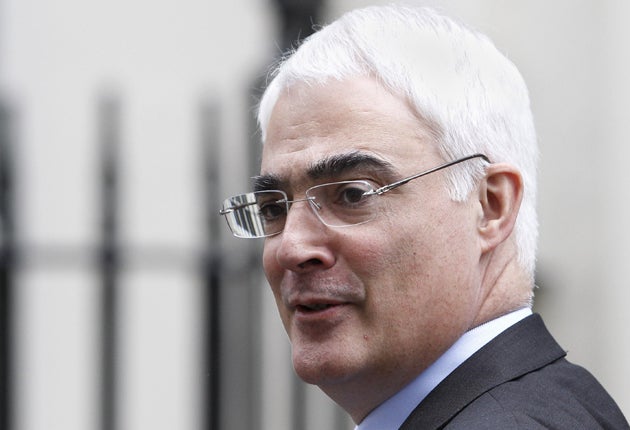Department budgets 'could be slashed by a quarter'

Your support helps us to tell the story
From reproductive rights to climate change to Big Tech, The Independent is on the ground when the story is developing. Whether it's investigating the financials of Elon Musk's pro-Trump PAC or producing our latest documentary, 'The A Word', which shines a light on the American women fighting for reproductive rights, we know how important it is to parse out the facts from the messaging.
At such a critical moment in US history, we need reporters on the ground. Your donation allows us to keep sending journalists to speak to both sides of the story.
The Independent is trusted by Americans across the entire political spectrum. And unlike many other quality news outlets, we choose not to lock Americans out of our reporting and analysis with paywalls. We believe quality journalism should be available to everyone, paid for by those who can afford it.
Your support makes all the difference.Government departments face the prospect of seeing their budgets slashed by a quarter following the general election, a leading financial think-tank warned today.
The Institute for Fiscal Studies (IFS) said that defence, transport, housing and universities could all face deep cuts if Chancellor Alistair Darling's Budget calculations are to add up.
Mr Darling today defended his decision to leave the main decisions on public spending until the autumn, once the general election is well out of the way.
But the Tories described the Budget as "empty nonsense" while the Liberal Democrats questioned whether the limited cuts which had been announced would actually be delivered.
In its post-Budget analysis, the IFS said departmental spending would have to be cut by £25 billion over the next two years, rising to £46 billion by 2014-15.
Carl Emmerson of the IFS said the cuts - amounting to a 6.6% real terms reduction in departmental spending in the first two years - would completely reverse Labour's spending increases over the past decade.
He warned that the decision to protect frontline spending on schools and health for the first two years - along with maintaining the overseas aid budget - meant the axe would fall disproportionately on other departments.
In the two years to 2012-13, those departments whose budgets were not protected would face a 14.1% reduction in spending, he said.
If the ring-fencing of schools and health spending was to end after 2012-13, he said departments across Whitehall would see their budgets cut by 19.5% by 2014-15.
However, if schools and health continued to be protected, the cuts for other departments would amount to a 25.4% real terms reduction over the four-year period.
"This next spending settlement is set to be very tight for areas such as higher education, transport and housing," Mr Emmerson said.
He also questioned whether the £11 billion in efficiency savings already announced by Chancellor would be achieved, pointing out that previous claims of efficiency savings had been challenged by the National Audit Office.
"We should be very wary about the contribution that efficiency savings are making," he said.
Mr Darling acknowledged that "aggressive" cuts would be needed in an autumn spending review if his commitment to halve the deficit over the next four years was to be met.
"We will need to cut public expenditure. We will need to be more efficient, more effective," he told the Press Association.
"I haven't done a spending review in the last year because things were so uncertain. We do need to do one this autumn.
"I have been very, very clear. If you want to halve your deficit in four years it comes at a price and I think people know that."
However, Tory leader David Cameron said the Budget had failed to set out a clear plan to cut the deficit, now put at £167 billion.
"There was just no energy in it, no ideas to get the economy moving, nothing to get this country growing again," he told PA.
"They are neither dealing with the debt - which is a big, black cloud over this economy - nor are they taking action to get the economy moving. I think it fails on every count."
Liberal Democrat treasury spokesman Vince Cable said it was doubtful whether promised efficiency savings - such as £555 million from cutting absenteeism due to sickness in the NHS - would be achieved.
"They are pretty insubstantial, They talk about £11 billion, we think it is £5 billion," he said.
"Obviously we want to have less absenteeism but how do you make it happen, let alone with the precision that they predict?"
Join our commenting forum
Join thought-provoking conversations, follow other Independent readers and see their replies
Comments